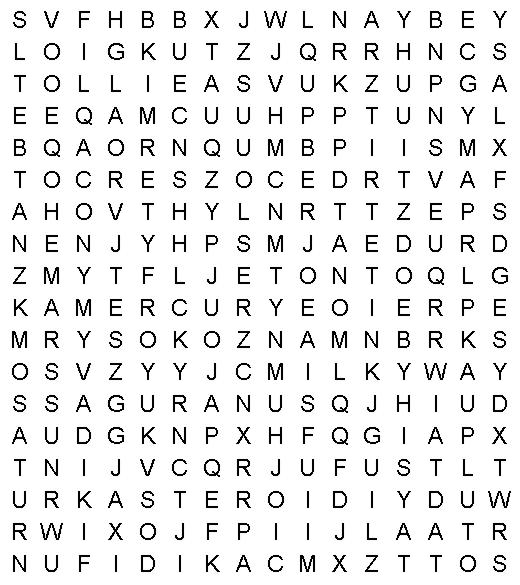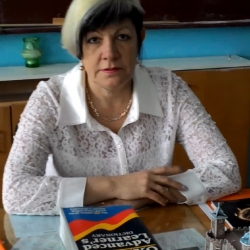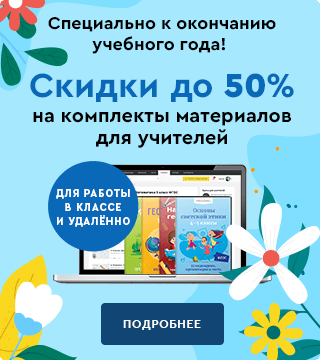В наше время стала очень популярна тема Космических исследований и всё, что связано с ними. Тема «Космос» изучается в 9 и 11 классах. Я решила создать небольшой сборник с разными типами заданий по этой теме.
Цель: создать сборник с заданиями по теме «Космос», включающий в себя несколько типов упражнений.
Задачи: найти информацию о Космосе. Сформировать несколько типов заданий и сделать полноценный сборник.
1$ Когда мы проходили тему Космос на уроках в школе, мне стало очень интересно и я решила найти больше информации. Анализируя дополнительно полученные мной знания, возникла идея создать небольшой сборник заданий по теме «Космос», чтобы ребята в школе могли больше узнавать на уроках в 8-9 классах.
Оставалось выбрать предмет по которому будет данный сборник – мой выбор пал на актуальный сейчас Английский язык.
2$ Для начала я нашла различные виды заданий по теме Космос в учебниках и интернете. Нашла красивые картинки и создала документ. Полностью оформила сборник с упражнениями. Создала презентацию и подготовилась к выступлению и защите своего проекта.
3$ В сборник входят такие виды упражнений как:
Упражнения на определение заголовков к абзацам текстов.
Задачи на составление выражений.
Тестовые задачи.
Подбор даты к событию
Соотношение английского слова с русским переводом.
Определить «правда» или «ложь».
Перевод выделенных слов в тексте.
Вставить слова, подходящие по смыслу, в предложения.
Выбрать из предложенных вариантов подходящий по смыслу и вставить в предложение.
Кроссворд.
Space Exploration.
1. Read the text and match the titles to the paragraphs of it. One title is extra.
A. Holiday-makers in space
B. Yuri Gagarin, the first cosmonaut
C. Outer space as a workplace
D. Father of rocket science
E. The flight that changed the world
1.The history of space exploration in Russia started with Konstantin Tsiolkovsky, a maths teacher from Kaluga. Tsiolkovsky never built or launched a rocked but he was the first person to understand the main ideas behind rocket scince – as early as 1903. He predicted and solved mani of the problems in rocket engineering, and he made designs for several rockets. He dreamt of a space age.
2.It was nearly 60 years before Tsiolkovsky’s dream came true. On 12’th April, 1961, at exactly 9.07 a.m. Vostok 1 lifted off for it’s 108-minute flight. There was one man inside – Yuri Gagarin, a soviet pilot and the first person in the world to fly into outer space. During his one orbit around the earth, Gagarin had some food and water; so he was also the first person to eat and drink in conditions of weightlessness. He didn’t have a camera to take photos, but he observed different parts of the earth.
3. Gagarin’s flight started a new stage in the history of exploration. It made more space travel possible. Now, 50 years later, many cosmonauts and engineers from different countries have made flights to outer space. Some of them have stayed in space for several months. They have done a lot of research and experiments.
4. In the 1990s Russian scientists started thinking about sending tourists into outer space. The world’s first space tourist was American millionaire, Dennis Tito. He went on an eight-day holiday in May 2001 in a Russian spaceship. He visited the International Space Station and landed afterwards in Kazakhstan with the two other members of the flight team. “I was worried that I might not feel well in space”, he said, “but I felt the best I’ve felt in my whole life. It was a trip to paradise”. Space scientists are now discussing the next idea: two-week space holiday with a trip around the moon $100 million. . . anyone interested?
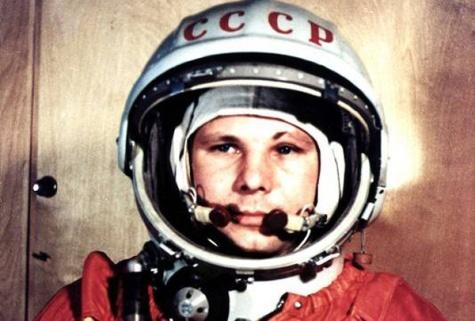
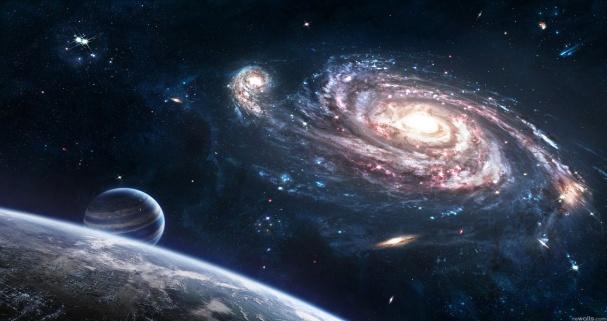
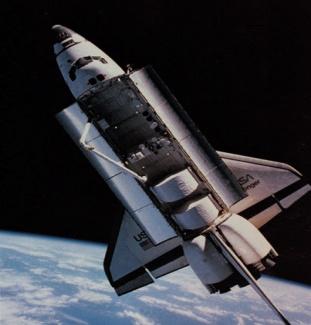
2. Match the words and phrases (1-9) with translation (A-I) and definitions (a-i).
1) Space exploration A. запускать
2) Launch B. исполняться
3) Predict C. исследование
4) Come true D. исследование космоса
5) Rocket engineering E. космический корабль
6) Weightlessness F. невесомость
7) Outer space G. открытый космос
8) Research H. предсказывать
9) Spaceship I. ракетостроение
a) a vehicle designed to be launched into space
b) building and testing of rockets
c)careful study of a given subject, field, or problem, undertaken to discover facts or principles
d) journeys to space to find out what it’s like
e) space beyond the atmosphere of the earth
f) the condition in space when nothing has any weight
g) to happen in real life
h) to say that something into space
3. True or false?
1) Konstantin Tsiolkovsky was the first person to build a rocket.
2) Yuri Gagafrin went round the Earth once.
3) During his flight Gagarin took photos of the Earth.
4) Space flight is now international.
5) Space engineers do a lot of scientific work.
6) The American took the first tourist into space.
4. Fill in the blanks in the sentences using the words from the exs. 2.
1) Cosmonauts and engineers have done a lot of . . . and experiments.
2) The history of . . . in Russia started with Konstantin Tsiolkovsky.
3) Tsiolkovsky predicted and solved many of the problems in . . . .
4) Tsiolkovsky’s dream . . . on 12’th April, 1961.
5) Yuri Gagarin was the first person in the world to fly into . . . .
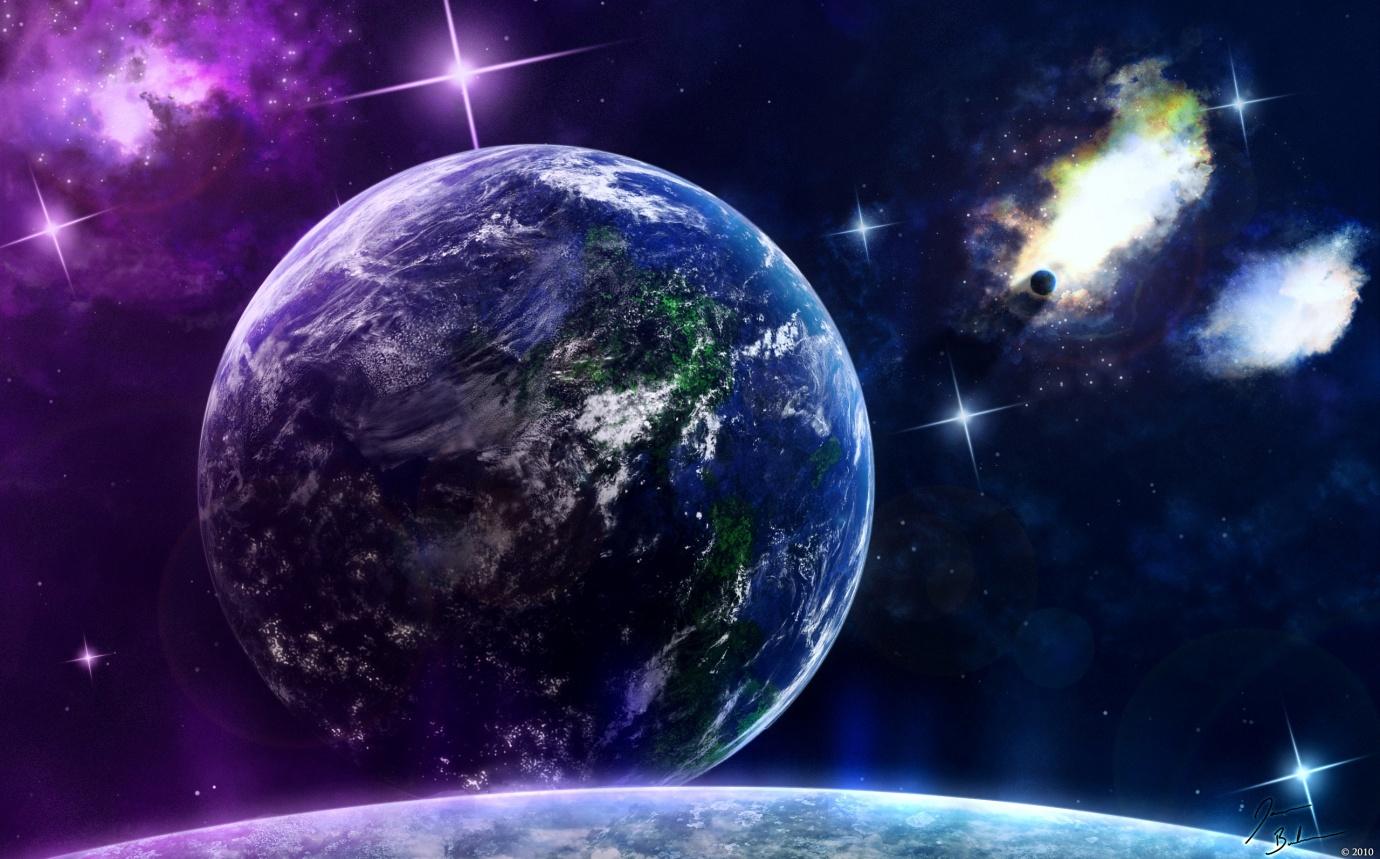
Live in space.
1.Read the text and pick up to each paragraph of the appropriate header. One header is an excess.
Spare Time in space
The Right Training
Good Housekeeping
Keeping Clean and Healthy
Time to Relax
Living Amond the Stars
1. How would you like to live three hundred and sixty kilometers above the Earth, flying at almost thirty thousand kilometers an hour through dark, airless space? Well, that’s exactly how the astronauts working on the giant international Space Station (ISS) live. “ Cool!” you might say. Well… maybe. Let’s take a look at what it’s really like to live in space
2. Living in zero gravity means doing lots of things differently. First of all, you can forget about having a nice hot shower in the morning, as the water droplets would simply float away. Astronauts have to use a vacuum hose to wash with. Also, when muscles don’t have to work against gravity as they do here on Earth, they go soft. So the residents of the ISS actually spend 2 hours a day working out on exercise bikes and rowing machines.
3. There’s no escape from household chores on the ISS. As dangerous bacteria grow quickly in zero gravity, the astronauts clean the whole station every day, which is about the size of a football pithc! Also the lack of gravity makes the simplest things in live seem quite weird! Take eating for example, to stope their meals floating away, astronauts have to “post” food packages into a special tray and then strap the tray to their legs. At least there’s no washing up to do, though. The astronauts simply put their dirty dishes and rubbish into plastic bags and send them back to Earth.
4. When it comes to sleeping, there’s no need for a bedroom! The astronauts could sleep anywhere, but they can’t risk bumping into any computer controls so they strap themselves into a sleeping bag in the wall. It’s a truly relaxing experience, as nothing presses against the skin. It’s important to cover your eyes, however, to block out the light of the sun as the sun rises and sets every 45 minutes when you are orbiting the Earth.
5. So, when astronauts aren’t doing experiments or chores or repairing equipment, do they get any free time? Well, a little! They often send emails back home, read books or watch movies, but most of all they like to stare out of the window and take pictures of their real home, Earth!
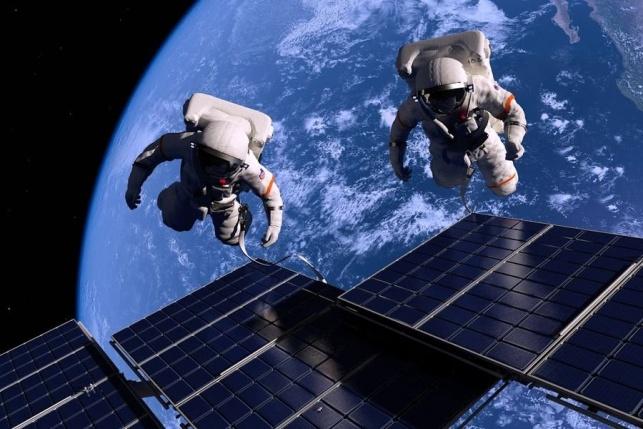
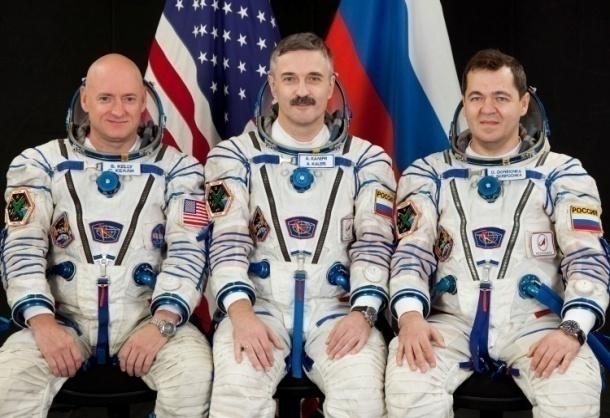
2.Watch the words/phrases in bold in the text to the meaning.
Look at for a long time
Touches
Huge
Hitting
Fasten
Exercising
Inhabitants
Shut out
Shortage
Going round
3.Fill in: sleeping, zero, soft, space, pitch, lack, vacuum, airless, household, do.
…………space
…………station
…………of gravity
…………bag
……… ...gravity
…………hose
Muscles go…………
…………chores
Football…………
…………experiments
The small test – “Galaxy”
How many galaxies are the since universe?
Hundreds
Millions
Billions
How many kilometers is an astronomical unit?
a) 150 million
b) 170 million
c) 180 million
How many kilometers is a light-year?
7,46 trillion
8,46 trillion
9,46 trillion
Which planet is closes to the sun?
Mercury
Venus
Mars
Which planet is farther to the sun?
Saturn
Uranus
Neptune
How long is Milky Way galaxy? It is about…
200000 Light-years
150000 Light-years
100000 Light-years
The Milky Way is galaxy…
Spiral
Spherical
Round
How many planets are in the solar system?
8 planets
7 planets
9 planets
Did you know?
1.Complete the sentences with: planets, moons, comet, galaxy, solar system, system, satellite. Check in the World list.
1) All the ………… in our ………… are 4.5 billion years old.
2) Jupiter has 63 ………… .The largest. Ganymede, is bigger than Mercury.
3) The stars in the milky way, the ………… to which the sun belongs, number in hundreds of billions.
4) The gas tail of a ………… always points away from the sun.
5) The first communications ………… orbited the earth every 2 hours and 37 minutes.
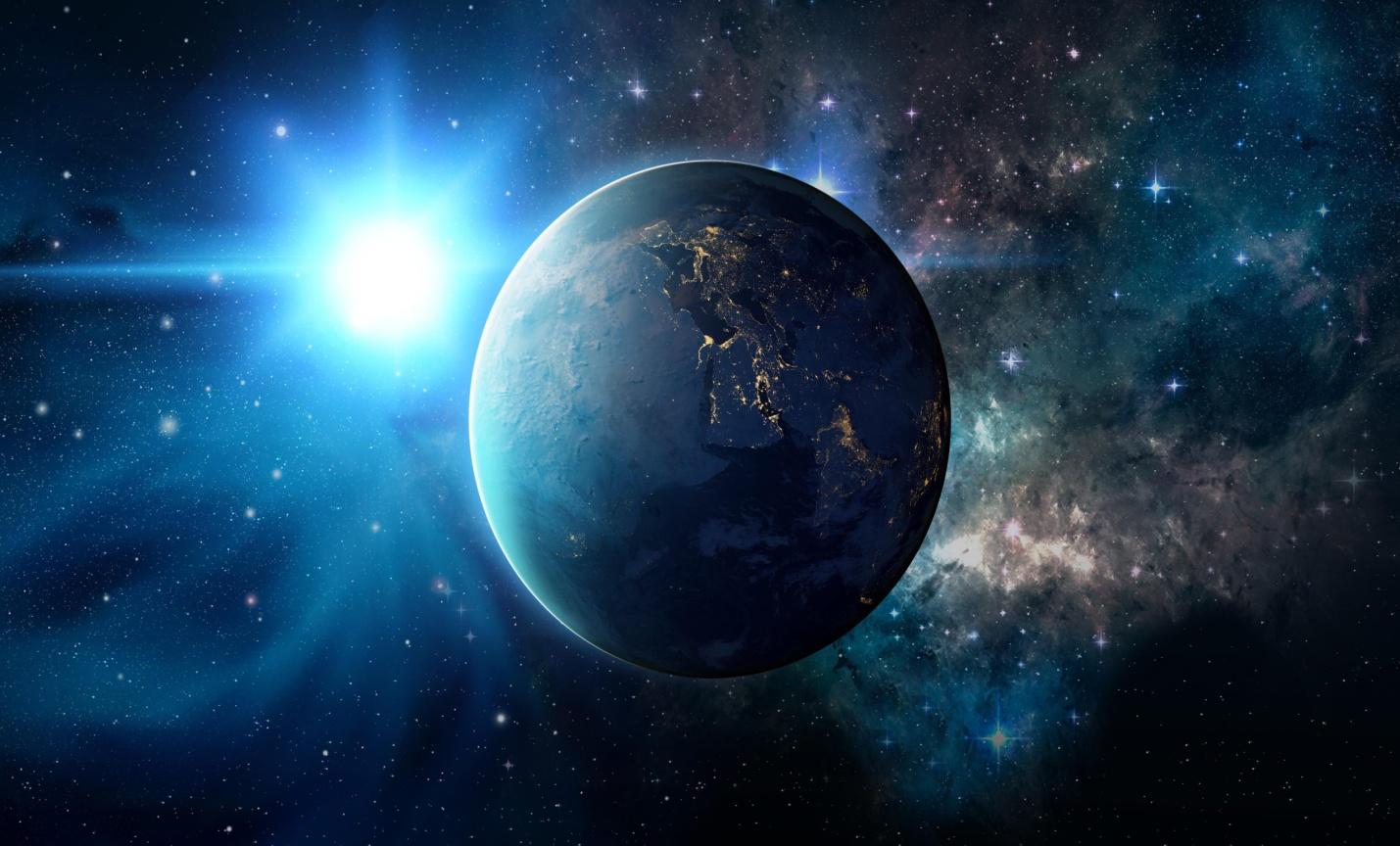
Space technology
Complete the sentences with the words below.
Telescope
Orbit
Radio waves
Antenna
Laser
Beam
Signals
Satellite
Cosmos
Can you see that ………… of light? I think it’s coming from a ………… .
The first ………… was put into ………… by the Russians in 1957.
The moon seemed so near when I looked at it through the ………… .
That radio doesn’t work any more. The ………… has broken off.
Can you see that flashing light in the distance? Maeybe someone is sending ………… .
………… enable us to transport information through the atmosphere without wires.
No one can really know the size of the ………… we life in. It’s so huge.
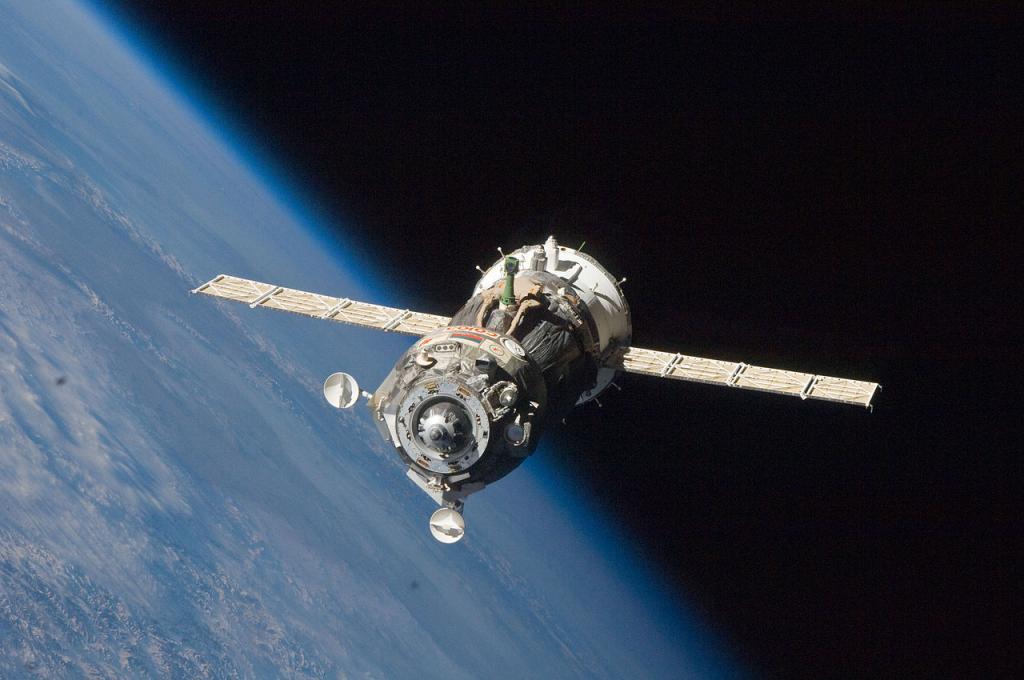
Reading
1. Read the article and fill in the missing sentences then explain words in bold.
a) In the evening we all have a couple of have dinner and relax.
b) For example , they might wake up to a traditional Japanese song one day, and a new American rock song the next!
c) They need a lot of energy, so they eat a lot of food.
Night and day around the Milky Way.
“Every day aboard a space shuttle is different in many ways, but you’re always busy up there!” said crew member Leroy Chiao when we asked him to tell us about a typical day on a mission in orbit.
Good Morning!
Every ‘morning’, Mission Control wakes the crew up with music at exactly 6:41pm CST (Central Standard Time – that’s the same time that people in Chicago use). The pieces of music are always different. 1(..) After that, they have a couple of hours to wash, have breakfast and get the ‘morning’ messages from Mission Control. Washing isn’t easy in space, and it’s impossible to have a shower, so the crew wash themselves with a wet sponge. Shaving is also, a difficult task up there, so the men have to use special ‘space’ razoprs.
Let’s get busy!
At around 8:45 pm CTS, the crew starts work. Most of the time they work on projects involving satellites and the shuttle itself. They also take photos of their activities and the view from the shuttle to send home. Each day there are also two six-hour space walks. “We have between eight and ten minutes to do each task,” says Leroy, “so we have to work very closely and help each other.” The crew take a short break for lunch during the ‘afternoon’.
2(..) According to NASA, the crew’s special meals are “ tasty and very good of them”. After lunch, they go back to work until around 8:45 am CTS.
Astronauts need to rests, too!
“ Fortunately, it’s not all no play aboard the space shuttle”, says Leroy.” 3(..) “Most of us read and send our personal e-mail in this free time, but we also like to read books or listen to music. Sometimes we sit by the window and admire the Earth and the stars “. After that, at exactly 10:41 am CTS, it’s time for the crew to go to bed, while Mission Control and the shuttle’s computers take over for the ‘night’.
Choose the correct word.
1 Mission Control wakes the crew up with music at exactly … pm CST.
a) 7:41 b) 6:41
2 Washing is not … in space
a) easy b) difficult.
3 Each day there are also … space walks
a) two six-hour b) six two-hour.
4 Sometimes we sit by the window and admire the …… аnd the stars.
a) Earth b) moon
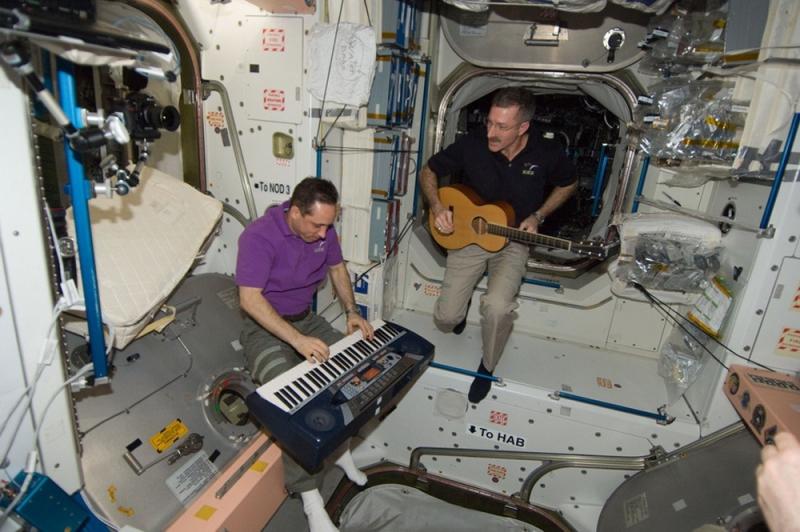
The Important Events.
1.Match the event and the correct date.
1969
1957
1963
1961
1962
In … … USSR launches first satellite, Sputnik 1.
In …… Yuri Gagarin (USSR) is the first man in space.
In …… USA launches first communications satellite.
In …… Valentina Tereshkova (USSR) is the first woman cosmonaut.
In …… Apolo 11 astronauts Neil Armstrong and Edwin Aldrin (USA) land on the moon.
In …… USSR sends two probes to Mars.
In …… USA and USSR cooperate in space; Apolo and Soyuz craft dock (link) in orbit.
In …… Pioneer spacecraft (USA) leaves solar system.
In …… the Soviet space station Mir is launched into space.
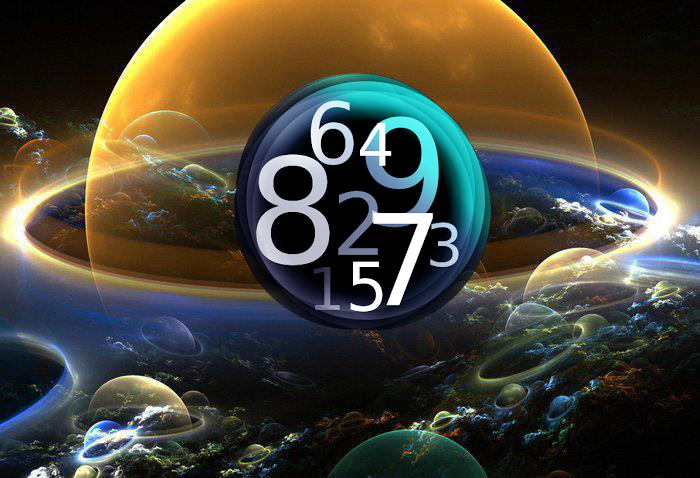
|  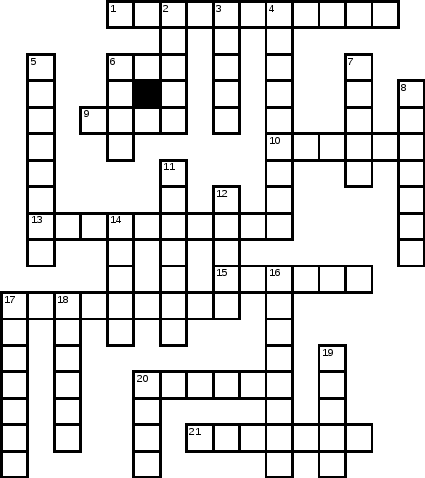
|
|
|
Across 1. The kind of planet that Earth and Mars are. 6. Star at the center of our solar system. 9. This planet is known as the red planet. 10. A hole in the ground caused by a meteor hitting a planet. 13. An outer layer of gas on a terrestrial planet. 15. Planet between Saturn and Neptune. 17. Planets like Jupiter, Saturn, Uranus, and Neptune. 20. A rock that crashes into Earth's atmosphere. 21. The largest planet in the solar system. | Down 2. Something that both Saturn and Uranus have. 3. Our planet. 4. An instrument that scientists use to observe planets. 5. Our galaxy. 6. Our sun is this. 7. The farthest planet from the sun. 8. Planet closest to the sun. 11. Planet named after the sea god. 12. Planet known as the evening star. |
14. The path that a planet takes around the sun. 16. One of many 'rocks' in a belt between Mars and Jupiter. 17. The force that holds planets in their orbits. 18. Planet famous for its rings. 19. An icy rock that has bright tail when it comes close to the sun. 20. Earth's companion. |
| © 2006 www.bogglesworldesl.com
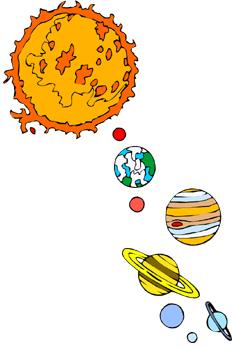
|
| Down 2. Something that both Saturn and Uranus have. 3. Our planet. 4. An instrument that scientists use to observe planets. 5. Our galaxy. 6. Our sun is this. 7. The farthest planet from the sun. 8. Planet closest to the sun. 11. Planet named after the sea god. 12. Planet known as the evening star. |
14. The path that a planet takes around the sun. 16. One of many 'rocks' in a belt between Mars and Jupiter. 17. The force that holds planets in their orbits. 18. Planet famous for its rings. 19. An icy rock that has bright tail when it comes close to the sun. 20. Earth's companion. |
|
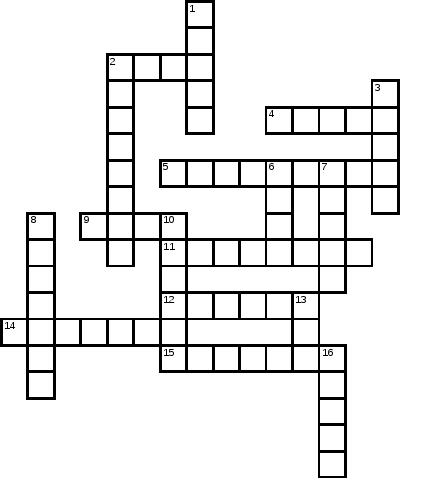
|
Across 2. Earth's companion. 4. This used to be called a planet but now isn’t. 5. An instrument that scientists use to observe planets. 9. This planet is known as the red planet. 11. One of many 'rocks' in a belt between Mars and Jupiter. 12. Planet between Saturn and Neptune. 14. The largest planet in the solar system. 15. Planet named after the sea god.
|
|
Down 1. Planet known as the evening star. 2. Our galaxy. 3. An icy rock that has bright tail when it comes close to the sun. 6. Our sun is this.
|
7. The path that a planet takes around the sun. 8. Planet closest to the sun. 10. Planet famous for its rings. 13. Star at the center of our solar system. 16. Our planet. | 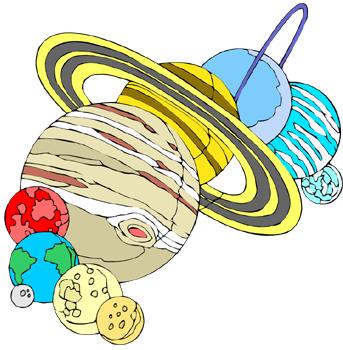
|
|
|
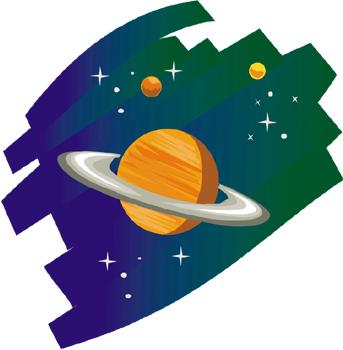
|
|
|
|
|
|
solar system Sun Mercury Venus Earth Moon
|
Mars Jupiter Saturn Uranus Neptune Pluto |
asteroid comet meteor crater rings Milky Way |
